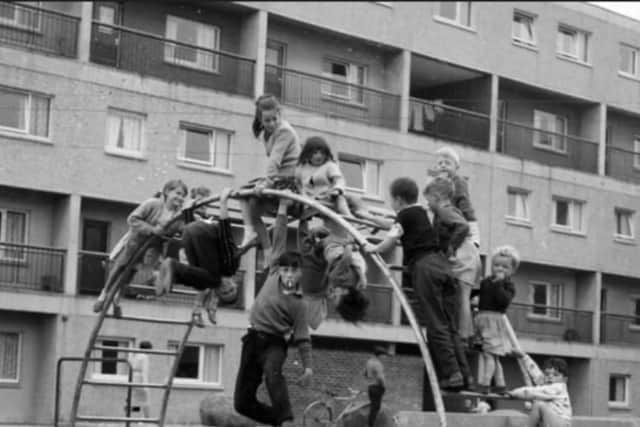Burns Night 2023: What are the top 10 favourite Scots songs? Daddies mammie, jeelie pieces and big banana feet remembered
Now, Ye Canny Shove Yer Granny has been named as the nation’s favourite traditional Scots language song, following a poll of more than 1,000 people.
The research sought to find the favourite Scots song as well as people’s experiences of learning them at school. The results have thrown up age-old lyrics of mince and tatties, jeelie pieces, big banana feet and three craws on a wa’.
Advertisement
Hide AdAdvertisement
Hide AdThe clear winner was Cannae Shove Yer Granny, with more than a fifth of people saying it was their favourite.


The writer of the song’s lyrics remains obscure, but the tune came from the USA in the 1940s as She’ll be Coming Round the Mountain When She Comes.
The easy melody and cheeky story made it a winner for children of generations since, with full voice usually deployed to sing about the fate of their ‘daddies mammie’.
The poll was carried out by VisitScotland to celebrate the Scots language ahead of Burns Night on Thursday next week.
Over a fifth of Scots (22 per cent) selected Canny Shove Yer Granny as Scotland’s favourite and most memorable Scots song.
The second favourite Scots (12 per cent) is Donald Where's Your Troosers. Written by Andy Stewart in 1960 to poke fun at polite society, it reached 37 in the UK singles chart and enjoyed new success in 1989 after it was played by Radio 1 DJ Simon Mayo. The airtime led to a re-release ahead of Christmas 1989 when it charted in fourth place.
Scotland’s third most popular song has been named as Culter’s Candy. The story of Ally Bally Bee sitting on his mammies knee was an ingenious stroke of marketing that was embedded in young minds for generations.
According to the Scots Language Centre, the song was written by 1870 by Robert Coultart, a mill worker in Galashiels who made aniseed-flavoured toffee in his house and sold it around all the fairs and markets in the Borders. He made up his song to call the children to buy his sweets and played the tune of his whistle.
Advertisement
Hide AdAdvertisement
Hide AdThe VisitScotland research found nine in ten Scots (86 per cent) had fond memories of learning Scots songs at school, with 91 per cent saying they could read and listen to Scots songs and understand what most of the words mean. A further 84 per cent can still sing the lyrics of songs they learn.
Cat Leaver, VisitScotland head of brand and global marketing, said: “A passionate advocate of the Scots language, the words of Robert Burns have inspired people around the world for generations, with Burns Night an internationally enjoyed celebration of Scottish culture.
“This research demonstrates the lasting impression of the Scots language on people across the country and the importance of communities to keeping these traditions alive."
What are the top ten favourite Scots songs?
The nation’s favourite Scots songs from the poll are as follows:
- Canny Shove Yer Grannie (22 per cent)
- Donald Where's Yer Troosers (12 per cent)
- Coulter’s Candy (10 per cent)
- Wee Willie Winkie (9 per cent)
- Skinny Malinky (7 per cent)
- Three Craws Sat Upon a Wa' (6 per cent)
- The Jeely Piece Song (6 per cent)
- Bonnie Wee Jeannie McColl (4 per cent)
- Scots Wha Hae (3 per cent)
- My Hearts in the Highlands (2 per cent)
Comments
Want to join the conversation? Please or to comment on this article.